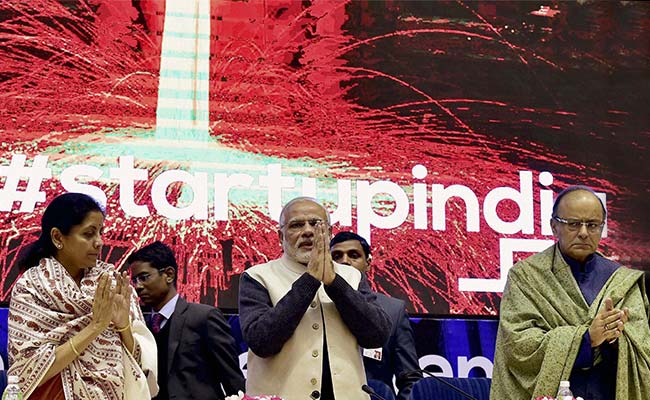
Startup Ecosystem – Narendra Modi, the Prime Minister of India announced “The Start-Up India” Initiative to encourage entrepreneurship and innovation in his Independence Day speech in 2015. This is to create a favorable environment for Start-ups where the country can grow into a job creator rather than a job seeker dominated economy.
This initiative was launched on January 16th 2016 from Vigyan Bhavan in New Delhi, which was attended by over 2000 entrepreneurs! This included a global workshop to stimulate dialogue on the main challenges in creating a Startup Ecosystem and solutions to solving the same.
Currently the job market looks bullish towards job creators rather than the job seekers on the whole. The trend has slowly shifted towards entrepreneurs over the past few years. Here are a few useful questions answered to understand the startup ecosystem in India:
What is a StartUp Ecosystem
A Startup Ecosystem comprises of entrepreneurs, various financial and non-financial support such as, equity investments and grants, debt finance, and non-financial support including incubation, acceleration support, mentoring and technical experts.
It also includes the government policies and programmes relevant to startups, academia and other organizations and concerns that interact in different ways with and support startups.

Elements of a Startup Ecosystem
Entrepreneurs and Start up’s
Startups are basically New Businesses. The major challenges for one of these are scaling issues and raising capital. Good start ups manage both these aspects well to shoot for growth and innovation.
According to a recent study by Nasscom, India has around 4400 startups that employ close to 85,000 employees. Total funding till 2015 in startups is estimated to be $6.5 billion. The ecosystem for both technology and traditional startups has been expanding at a quick pace.
Good examples of pioneers in the start-up landscape in India are MakeMyTrip and Naukri, who event though started a decade ago have seen immense success through the years.
Finance for Startups
There are three types of funding angel, seed and Venture capital funding. The first two types are important more than the third since they provide funding in the early stages of the start-up’s incubation. Venture finding comes later when the company is generating revenue. A very small percent of funding in India are angel investors since risk is high in the current environment.
Incubation and Mentoring Services
Incubators for start-ups deal with everything to start a business except revenue generation. They deal with building on an entrepreneur’s business idea. Understanding labor laws and environmental laws, setting up the physical infrastructure and providing work spaces etc. form the services of an incubator. Accelerators do the same in a faster and more intense fashion.
Industry Bodies, Regulatory Authorities, Scaling
You have to liaise and coordinate with various industry agencies such as CII, FICCI and NASSCOM to make sure your business will run smoothly from a regulatory standpoint since you will have to get past these authorities before you can achieve any milestone in your business
Ever since the inception of the start-up action plan promoted by the PM Modi, things have started rolling faster wrt respect to red tape in the Start-up industry. The terms mentioned in this article will give you a head start on how the cogs and wheels of the start-up ecosystem in India mesh to provide new businesses.
